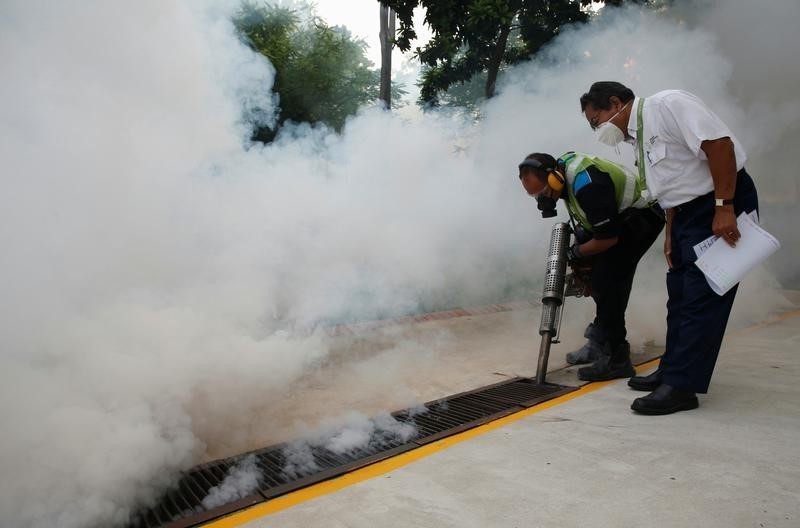SINGAPORE (Reuters) - Singapore will no longer isolate people who test positive for Zika or are suspected of carrying it as the number of cases of the mosquito-borne virus increases across the city-state, the health ministry said on Monday.
Tropical Singapore, a global financial and transit hub, has reported just over 240 Zika cases since the first locally infected case was detected on Aug. 27, and media has quoted the deputy health minister as saying the virus was "here to stay".
In a statement, the health ministry said the presence of the Aedes mosquitoes that carry the virus, as well as the fact that most people do not display symptoms, meant isolating patients already infected would have limited effect.
"Over time, we expect Zika cases to emerge in more areas given the presence of the Aedes mosquitoes here," the ministry said.
"As the cases of Zika in Singapore have been mild so far, confirmed cases will no longer need to be hospitalised unless medically indicated."
The government will also pay for the cost of Zika tests for Singaporeans with symptoms of the virus, the ministry added.
Most people who are infected with Zika have mild symptoms but infections in pregnant women have been shown to cause microcephaly - a severe birth defect in which the head and brain are undersized - as well as other brain abnormalities.
The connection between Zika and microcephaly first came to light last fall in Brazil, which has since confirmed more than 1,800 cases of microcephaly.
In adults, Zika infections have also been linked to a rare neurological syndrome known as Guillain-Barre, as well as other neurological disorders.
Neighbouring Malaysia has reported at least one case of locally transmitted Zika.

Experts and officials say both countries will struggle to contain the virus because of the spread of the Aedes mosquitoes, which also carry dengue, a potentially fatal virus that Singapore and Malaysia have been battling for years.